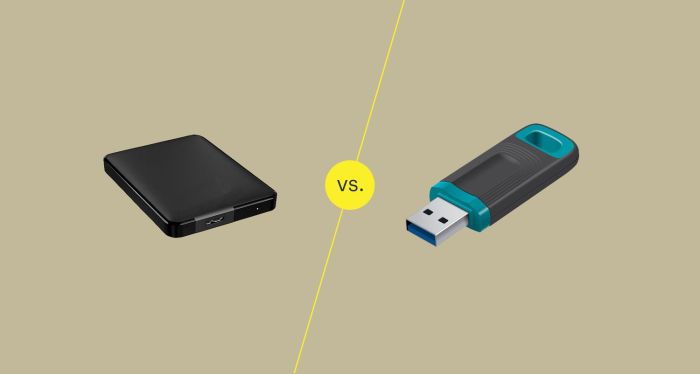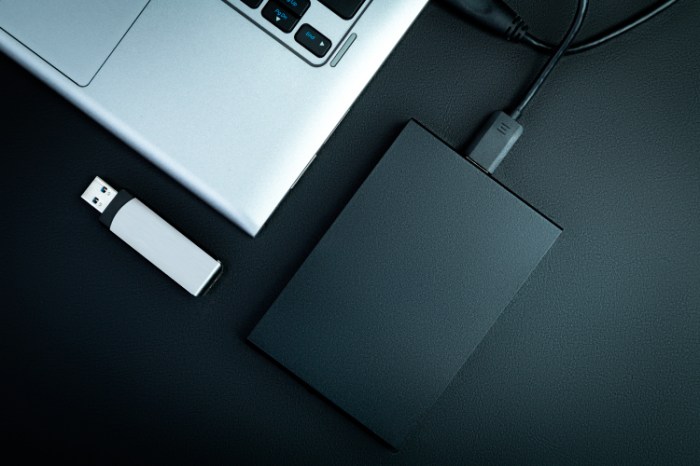In the realm of data storage, the debate between flash and hard drives has captivated the industry. As technology continues to evolve, understanding the intricacies of each storage medium is paramount for making informed decisions. This comprehensive guide delves into the world of flash vs hard drive, unraveling their key features, performance metrics, and practical applications.
From the dawn of digital storage, hard drives have reigned supreme, offering vast capacities at economical prices. However, the advent of flash technology has challenged this dominance, introducing unparalleled speed and portability. Join us as we embark on a journey to uncover the strengths and weaknesses of these storage giants, guiding you toward the optimal choice for your specific needs.
Flash vs. Hard Drives

Flash drives and hard drives are two widely used storage devices with distinct features and applications. Understanding their differences is crucial for selecting the most appropriate device for your specific needs.
Storage Capacity: Flash Vs Hard Drive

Hard drives offer significantly higher storage capacities compared to flash drives. Typical hard drive capacities range from 500 gigabytes (GB) to several terabytes (TB), while flash drives typically offer capacities between 8GB and 256GB. For storing large amounts of data, such as movies, music, or extensive software programs, hard drives are the preferred choice.
Speed and Performance
Flash drives generally offer faster read/write speeds than hard drives due to their solid-state design. This results in quicker data transfer rates and improved performance for applications that require rapid access to data, such as gaming, video editing, and database management.
Durability and Reliability
Flash drives are more durable than hard drives because they have no moving parts. This makes them more resistant to shock, vibration, and accidental drops. However, hard drives are more reliable in terms of data retention, as flash drives can lose data over time if not properly maintained.
Cost
The cost per gigabyte of storage is generally lower for hard drives compared to flash drives. This is due to the economies of scale involved in manufacturing hard drives. However, flash drives are becoming increasingly affordable, especially for smaller capacities.
Use Cases
Flash drives are ideal for portable storage, data transfer, and applications that require fast access to data. They are commonly used for storing documents, music, videos, and other personal files. Hard drives, on the other hand, are better suited for long-term storage of large amounts of data, such as backups, media libraries, and enterprise databases.
Design and Form Factor
Flash drives are compact and portable, making them easy to carry around and connect to various devices. Hard drives are typically larger and heavier, requiring a more permanent setup.
Future Trends, Flash vs hard drive
The future of flash and hard drive technology is expected to see continued advancements in capacity, speed, and durability. Flash drives are likely to become even smaller and faster, while hard drives may continue to offer higher storage capacities at lower costs.
Question & Answer Hub
What are the key differences between flash drives and hard drives?
Flash drives utilize solid-state memory, while hard drives employ spinning disks. Flash drives offer superior speed, durability, and portability, but hard drives provide greater storage capacity at a lower cost.
Which is faster, a flash drive or a hard drive?
Flash drives are significantly faster than hard drives in both read and write operations. This is due to the absence of mechanical components and the use of electronic signals in flash drives.
Which is more durable, a flash drive or a hard drive?
Flash drives are more durable than hard drives as they have no moving parts. They can withstand shock, vibration, and extreme temperatures better than hard drives.
Which is more cost-effective, a flash drive or a hard drive?
Hard drives are generally more cost-effective than flash drives, especially for large storage capacities. However, flash drives offer a better price-to-performance ratio for applications requiring high speed and portability.


